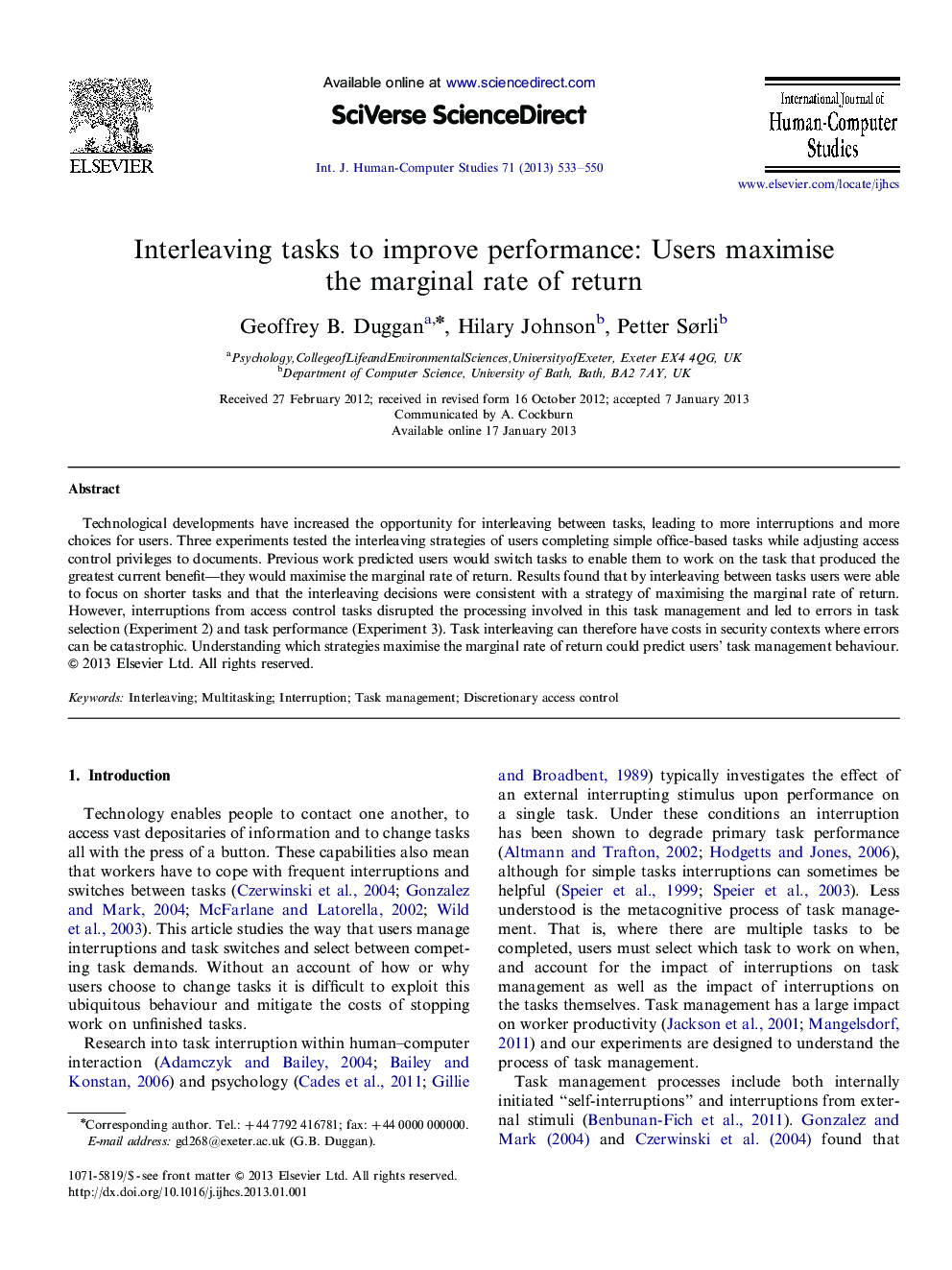| Article ID | Journal | Published Year | Pages | File Type |
|---|---|---|---|---|
| 400858 | International Journal of Human-Computer Studies | 2013 | 18 Pages |
Technological developments have increased the opportunity for interleaving between tasks, leading to more interruptions and more choices for users. Three experiments tested the interleaving strategies of users completing simple office-based tasks while adjusting access control privileges to documents. Previous work predicted users would switch tasks to enable them to work on the task that produced the greatest current benefit—they would maximise the marginal rate of return. Results found that by interleaving between tasks users were able to focus on shorter tasks and that the interleaving decisions were consistent with a strategy of maximising the marginal rate of return. However, interruptions from access control tasks disrupted the processing involved in this task management and led to errors in task selection (Experiment 2) and task performance (Experiment 3). Task interleaving can therefore have costs in security contexts where errors can be catastrophic. Understanding which strategies maximise the marginal rate of return could predict users’ task management behaviour.
► Users spontaneously interleave between tasks to improve overall performance. ► Task interleaving decisions maximised the marginal rate of return. ► Interruptions from access control tasks disrupt task selection and task performance. ► Task interleaving could have large costs in security contexts. ► The marginal rate of return could be used to predict task management behaviour.
